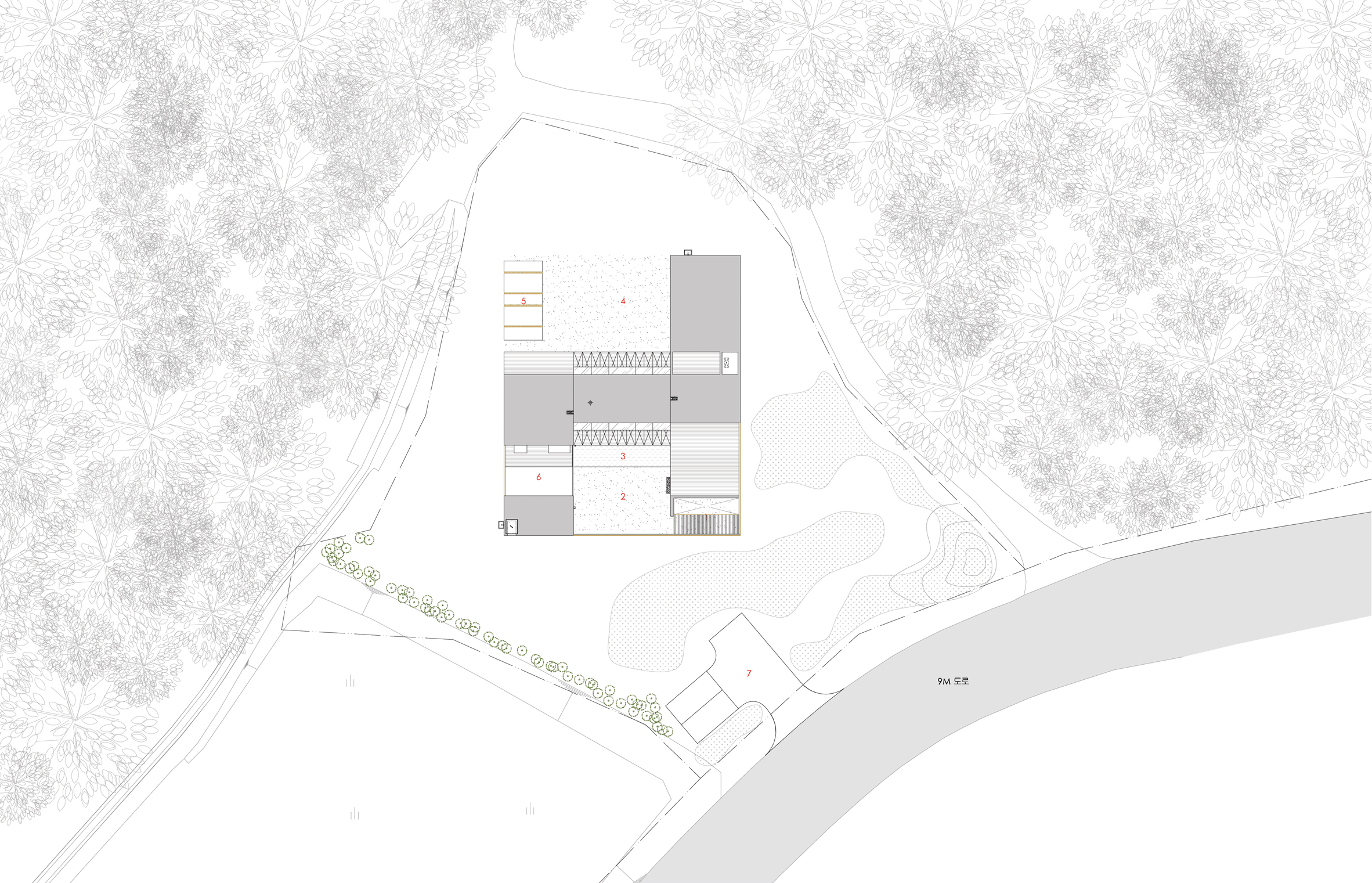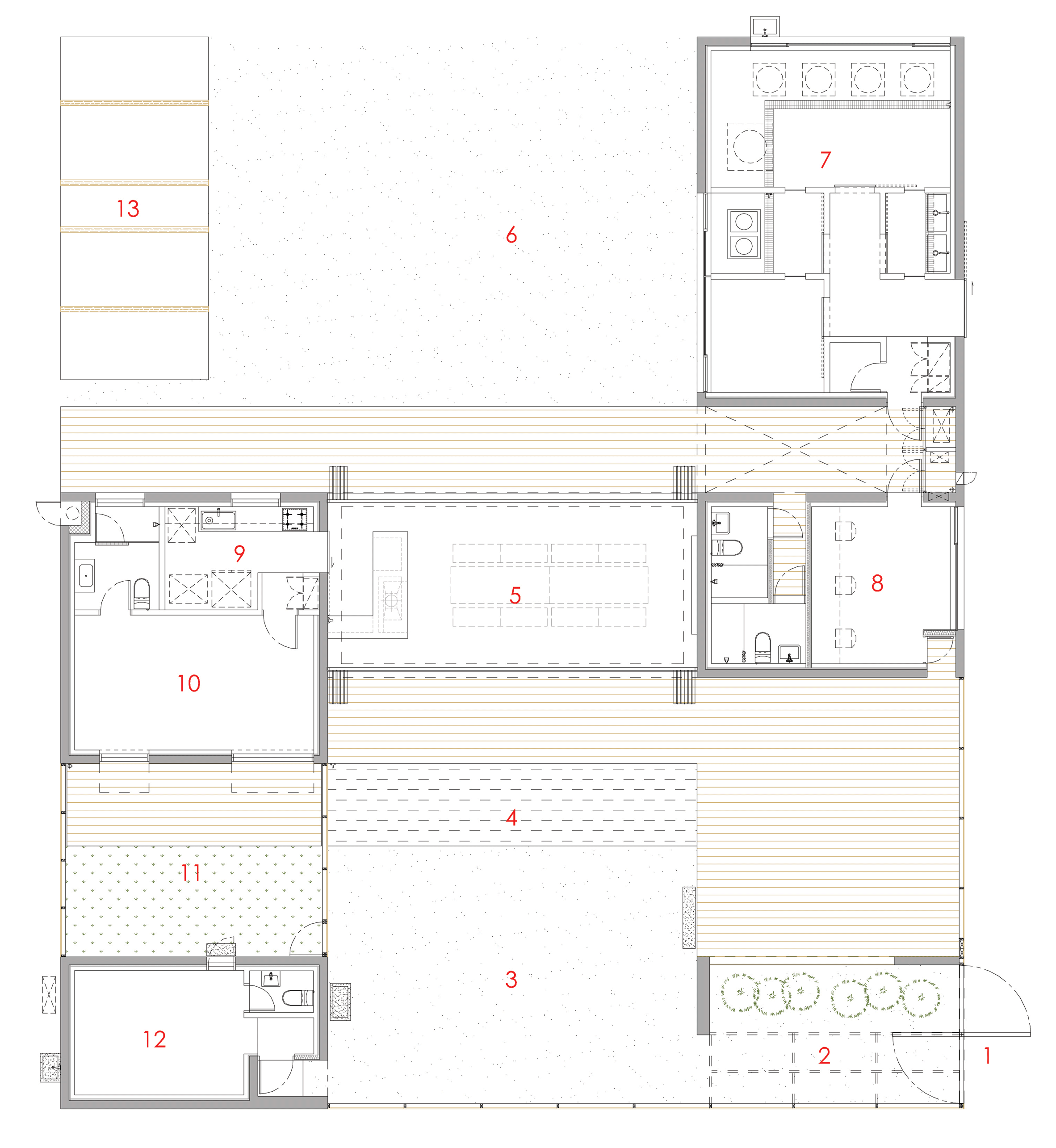Dandelion farm and visitor centre completed by Archihood WXY in South Korea
Dandelions are used to make medicine within this timber and concrete complex that architects office Archihood WXY has built in South Korea (+ movie).
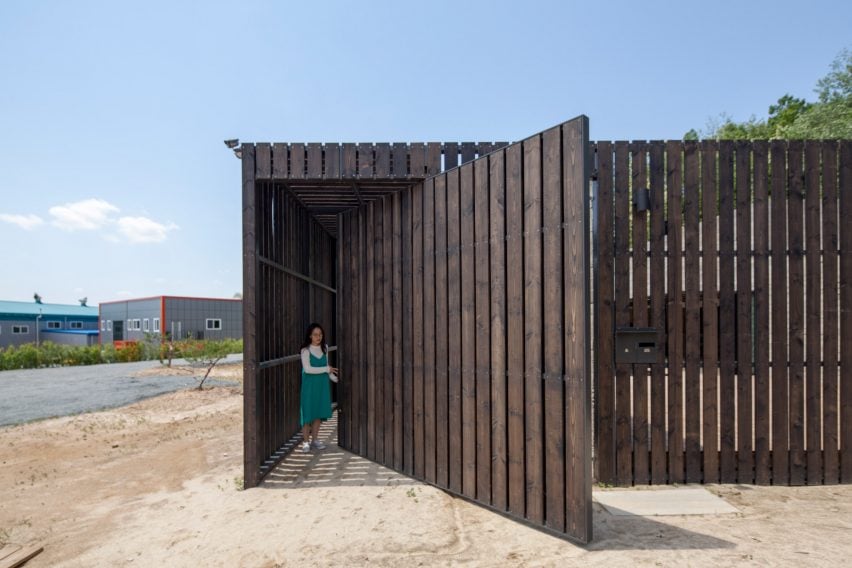
Called Korean Dandelion Farm, the small complex is located on the edge of a forest. It combines a production centre for herbal remedies with a peaceful visitor retreat.
As well as a flower garden and manufacturing area, it accommodates secluded terraces, a shallow pool and a farm cafe.
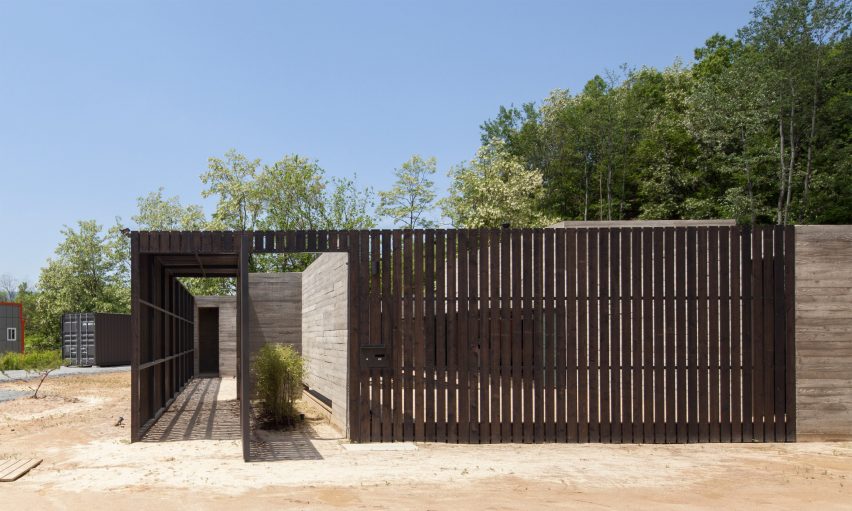
"Many guests visiting this place are weary in both body and mind because of their long struggle against illness," said Archihood WXY founders Woohyun Kang and Youngjin Kang.
"So we wanted to provide a place where they can reenergise their listless and depressed state, and to help remind them of memories by evoking their senses."
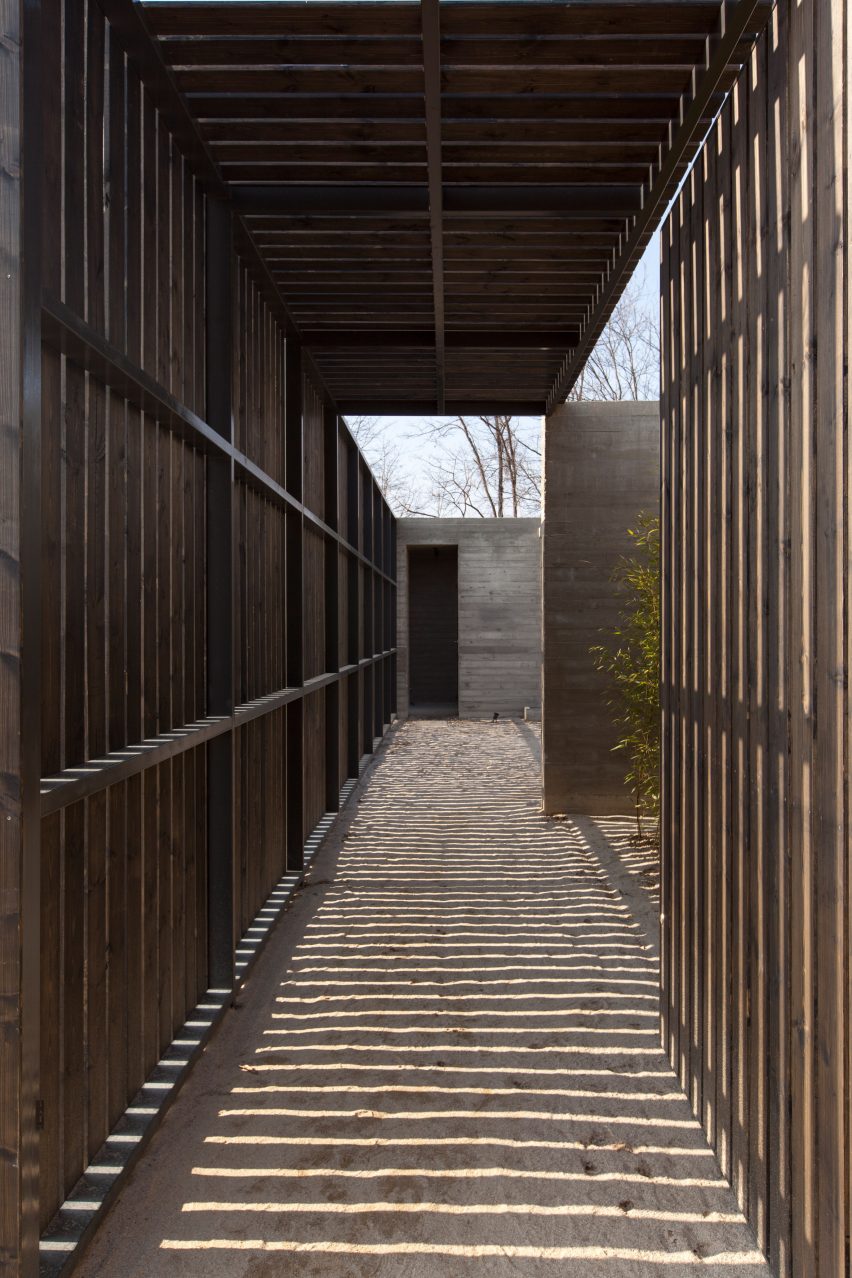
Dandelions have traditionally been used in various forms of medicine, to treat problems such as liver failure, kidney disease and fever and stomach ache. In Korea, they are often used to improve energy levels and general health.
Here, the wildflowers are grown in a planting area at the back of the building before being brought inside for use.
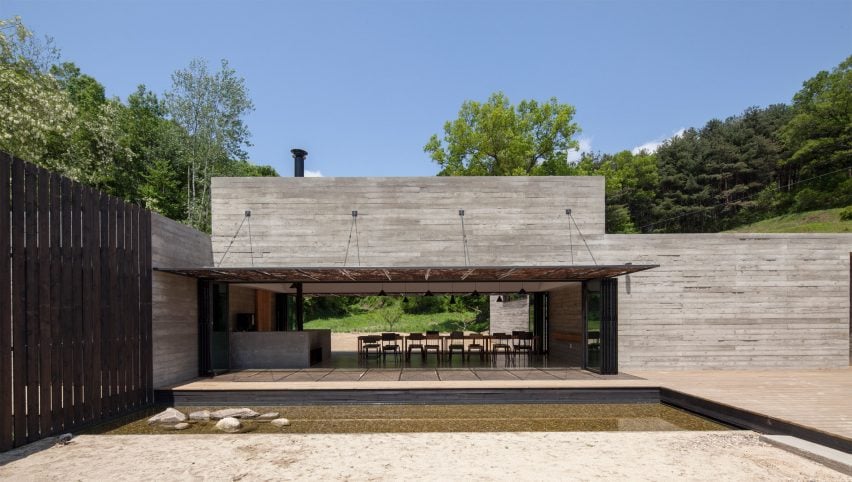
The complex is predominantly built from two materials. Concrete was used to create the more enclosed areas, while wooden fences surround the open-air spaces.
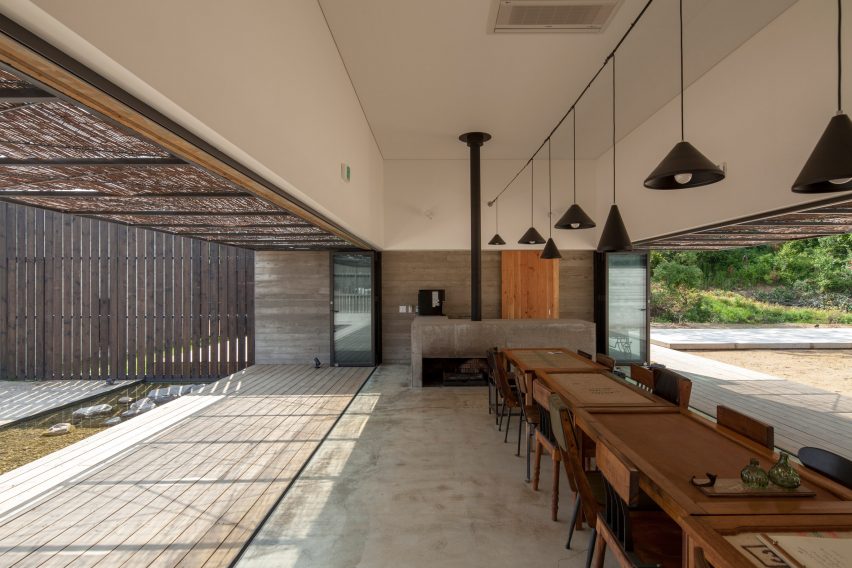
The concrete was cast against wooden boards, giving the two materials matching textures. But the concrete is left bare, while the wood is stained to give it a much darker tone.
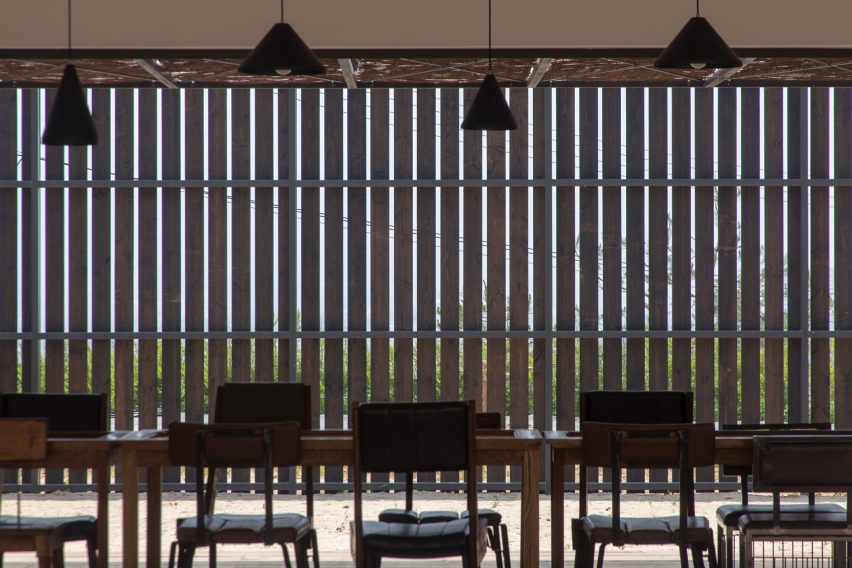
A large pivoting wooden door provides the main entrance, leading through to the main courtyard and cafe area.
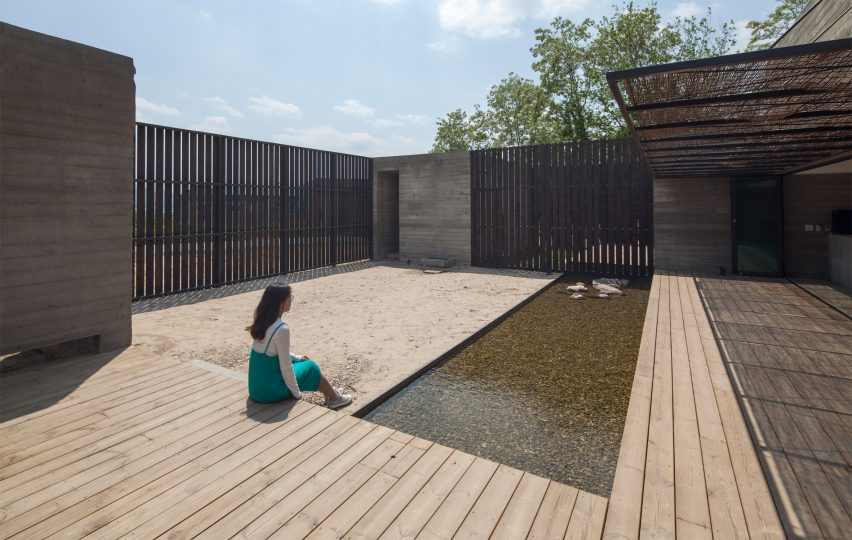
The cafe itself can be opened up to the elements on both sides. This allows the breeze to flow through, while also offering customers views right – a feature that Archihood WXY felt was very important.
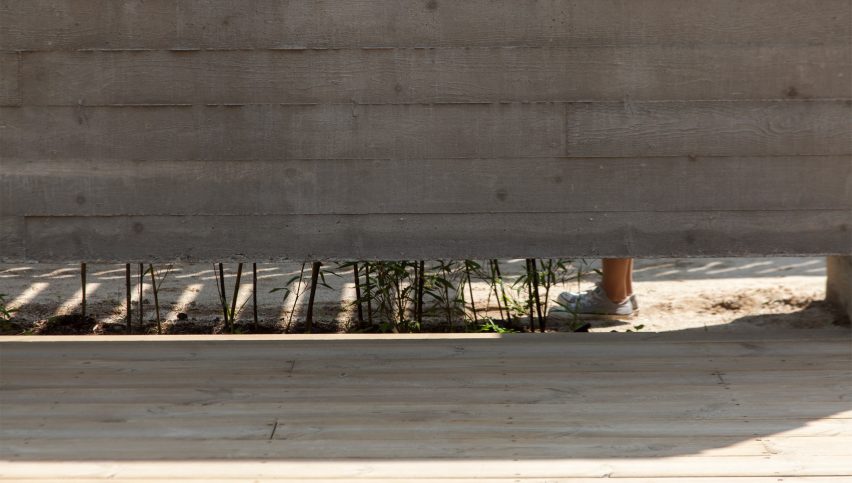
"Experience of dark and light triggers your emotional experiences in this space," said the architects. "When you enter the front courtyard, you can see the forest valley through the wide open farm cafe."
"The sense of nature from the valley stays in the farm a while, and passes through the wooden fence."
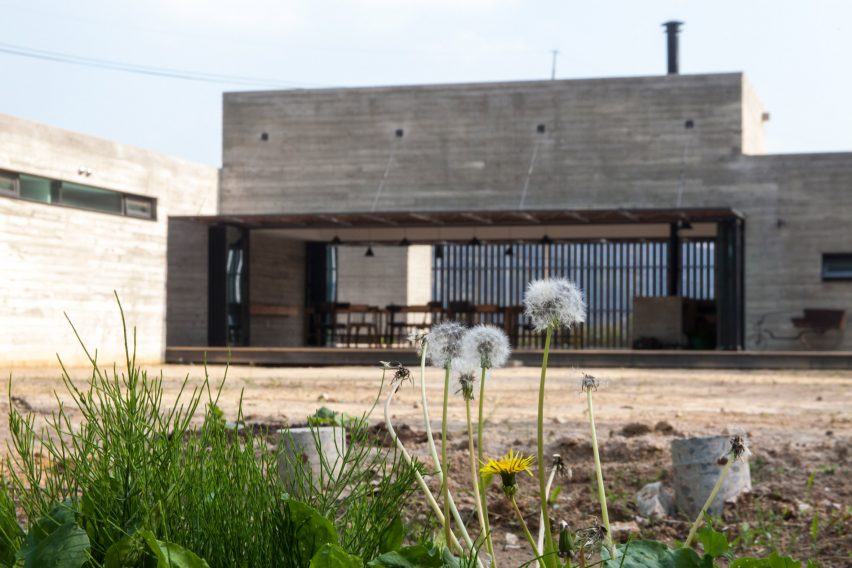
Other details include a bamboo canopy that helps to screen the cafe in bad weather, concrete spouts that integrate rainwater drainage, and simple furnishings.
"This space was designed to provide a peaceful, wondrous and natural setting where people can rest and relax," added the architects.
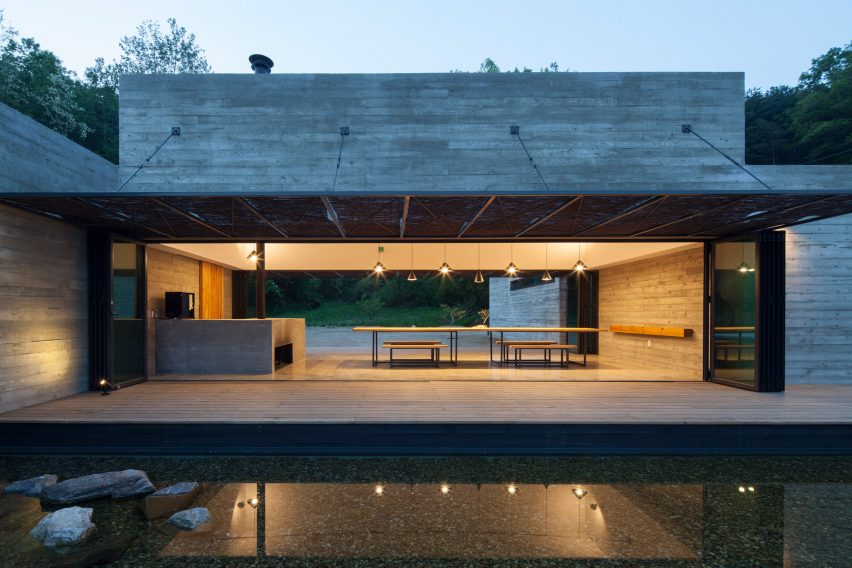
Woohyun Kang and Youngjin Kang founded their studio in 2013. Past projects include a co-living block in Seoul.
Photography and movie are by Woohyun Kang.
